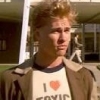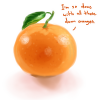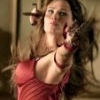Leaderboard
Popular Content
Showing content with the highest reputation on 11/23/20 in all areas
-
4 points
-
3 points
-
3 points
-
3 pointsLook I know the scale of the cats has been talked about to death but the main issue I had with scale were the cockroaches and mice. The average mouse's body is 95 to 120 mm in length and from the band scene we can see that they are roughly two matches tall. The average match is 40 mm so this checks out so far. Meanwhile the roaches are about the size of two strawberries. Strawberries come in a variety of sizes but I'd argue that an average store bought strawberry and a match stick are roughly the same size with a strawberry being a tad smaller. Which means that mice and roaches would be roughly of equal size. That means these cockroaches are also in the 95 to 120 range. The world's largest cockroach, the megaloblatta of central America, can grow up to 97 mm meaning these are indeed terrifyingly large cockroaches. However, if we want to take this a step further we can extrapolate some information as to the size of these cats. The cats interact with the mice and roaches and pick them up. When they are holding the roaches they are the about the length of the cat's fingers. Your middle finger is approximately the length of your palm, so the cat's hands are approximately double that of the mice and roaches, putting them in 190 mm to 240 mm range. Studies have shown that our body is made up of many ratios that tend to be consistent. One is that your height is about nine times that the size of your hand. So take those numbers and doing a little math show that these cats are 1.71 m 2.16m tall. Given that that roaches were slightly smaller than the mice let's focus on the lower end of the spectrum and say that these cats are 1,71 m tall which is the mean height for adult men globally. These are indeed human sized cats.
-
3 points
-
3 points
-
3 pointsI'm sorry but is nobody going to address how McCavity shouts his own name when he disappears people?!?!
-
2 pointsObviously everyone has read "Prufrock," but who else here has read XJ Kennedy's "A Prominent Bar is Secaucus, NJ"? It's a narrative poem about an old woman -- who could be seen as either a prostitute or maybe just an old floozy -- who talks about how she used to live the high-life before she became an old junkie. The speaker in the poem made her life sound pretty glamorous in her youth, but the climax of the poem is her being led away by police as she says: "For when time takes you out for a spin in his car You'll be hard-pressed to stop him from going too far And be left by the roadside, for all your good deeds, Two toadstools for tits and a face full of weeds." The woman in the poem sounds like she could be a Grizzabella- type ... once a gorgeous dame who in her prime had money and attention, smoked cigarettes rolled in gold, bet on the horses, and stayed at the best hotels. Now, she's an old woman who causes a scene at the bar and gets arrested. Maybe a sex-worker, or maybe a girl who took all advantage of her lot in life to party hard while she could. Of course, the main difference is that while the speaker in "Prominent Bar" lived the high life in her story, Grizzabella's song tells a different tale: "She haunted many a low resort Near the grimy road of Tottenham Court She flitted about the No Man's Land From "The Rising Sun" to "The Friend at Hand" So Grizzabella is not from the same side of town, it would seem. But that doesn't automatically make her a sex worker -- perhaps she was just aping upperclass glamour, and now that she's been brought low by time and age, everyone around her takes a certain schadenfreude in her current state.
-
2 points
-
2 pointsCorrection: Jason says Victoria is played by Cynthia Erivo and Paul says yes. She is not. The actress is Francesca Hayward, who is a ballet dancer. And I feel bad for her because this was supposed to be her big film debut and they barely even have her dance. Here she is starring in the Nutcracker.
-
2 pointsI have to respectfully disagree, forum June. While I agree some of the cats are sexualized, and there are certainly hints of promiscuity (Rum Tum Tugger and Taylor Swift’s cats, for sure), I would argue that Grizebella is one of the only cats that isn’t sexualized. And, I have to stress, an assumption that McCavity is her pimp feels patently absurd. I don’t believe they even share a single scene together! I just don’t see any evidence of prostitution. I’m not even sure what would be exchanged for sexual favors. Cat treats? Is it coded in a language that I just don’t understand? I guess I need something more solid then, “She just comes off as a sex worker.” I think it’s exactly as it says on the tin. Just like they have literal railroad cats and literal barge cats, she was literally a glamorous cat. I think her tragedy is far more universal. It’s essentially, “I used to be amazing, but things went bad, and now everyone’s forgotten about me. So much so, that, even to myself, I am completely unrecognizable as the being I once was.” I think a more apt parallel for Grizebella would be aging actress - which, to me, makes a lot of sense for a stage production. In her heyday, she used to be center stage, but despite her obvious talent, she got pushed further and further to the wings, until one day, her agents just stopped calling altogether. This is why she gets the big number at the center of the movie. She’s saying, “Look at me! I still have worth! I’m more than just the pretty face I used to be!” Again, there’s nothing wrong with it if she is supposed to be a sex worker, but to make a superficial assumption based on, I guess, how the character looks, without further evidence to back that up, feels fraught to me. Not to mention that it seems to completely miss the point of the character.
-
2 pointsI hate to disagree with you, forum Paul. But I do think that is a logical conclusion based solely on the film. Sure the poems are for kids and it’s a family musical, but in the FILM the cats are weirdly sexualized. And the Taylor Swift song , if I recall correctly, has catnip and it is sort of implied she is bewitching them. I don’t know. I got the impression she was once like the Taylor Swift cat and then she sort of fell into prostitution. Why else is she out on the STREET? She became a streetwalker! I don’t think Andrew Lloyd Webber would say she’s a sex worker... but, again, the movie is weirdly sexual in a way that I don’t like. And that is what I thought she was as well until I fell down the poetry rabbit hole (still mad at T.S. Eliot).
-
2 pointsI’m not sure we should just breeze right past the fact that Paul referred to Grizabella the Glamour Cat as...the “sex worker” cat?!? The cats in the movie are supposed to represent real cat personalities, traits, and behavior. For example, Rum Tum Tugger is supposed to evoke a horny alley cat, while Mungojerry and Rumpleteezer represent the more mischievous nature of cats. Even the more fantastical cats like Mr Mephistopheles, represent cats who do amazing, seemingly magical things. You know what cats aren’t known for? Sex work. I’m...not even sure what that would even be. Basically, Grizebella is a cat who was once beautiful and pampered. She had a cushy life, but has since fell on hard times. She would have been a cat you’d put in a competition or something. And while it’s never mentioned explicitly, I believe the audience is supposed to come to the conclusion that, as she grew older and her beauty began to fade, she was abandoned by her owners. This leaves her in a decidedly un-jellicle existential dilemma. What happens to you when you can no longer be the thing you were born to be? Not only that, what happens when you lose your entire support system when you learn that the love you thought you had turns out to be superficial and conditional? The song “Memories” is Grizebella remembering the good life she used to have, wishing she could go back there, accepting that she can’t, and trying to find the courage to carry on. So, while there is certainly nothing wrong with sex work as a profession, no, Grizebella is not meant to represent a “sex worker cat.”
-
2 pointsI've never left any comments, though I've been a listener for years. I have to say, this Cats episode is one of the best Paul, June, & Jason have ever done. Part of this is the source material and the contempt it breeds-- I watched Cats with a Discord group at the beginning of the lockdown and my attention span died within five minutes and never recovered-- but part of this is due to the agitation and anxiety of doing having virtual discussion of a baffling and craptastic movie (and cat-tastic 'classic' musical). Jason seems on edge, and you know what? I feel ya friend. It's hard not to be on edge. Who wants jellicle b.s. with the isolation and the awful feeling one gets checking the news? T.S. Eliot wrote silly cat poems, Andrew Lloyd Webber adapted them into a stubborn and tiring musical, we were all subjected to a tiresome film adaptation with CGI-negated genitals, and we're all enjoying a collective sigh of relief-- from Cats and a very un-musical year. Thanks guys! Love this podcast and am really enjoying this discussion as I telework and process endless paperwork. Hang in there, and thanks for the collective, cathartic "Fuck Cats!"
-
2 pointsAs a musical theatre actor and someone who went to school for musical theatre I wanna point out two things. 1. Andrew Lloyd Webber set a book of poems by TS Elliot to music so most of the lyrics are not his at all. That is why there is no story because it was originally just going to be a song cycle of poems set to music that eventually became a show. 2. I think it’s important to point out that Cats is more of a dance show than it is a singing show. This is why it doesn’t work as well in a movie platform. The real power of the show comes from the incredible dancers on stage dancing and doing great physical work and tricks and that is what makes it so compelling in person. That does not translate well when the whole movie is being done with motion capture. I you think of the show more in the sense of a cirque show that has always been more the vibes to me. More about the spectacle less about the over all story telling.
-
1 pointI am really excited to talk about this. The commercial for CATS used to terrify me as a child. Then when the movie came out I paid $20 (!) for it. Why? Because I knew HDTGM would cover it. (And actually, in hindsight, I think the makeup and costumes that scared me so much as a kid were a plus for the musical. Because if you went, at least you knew they put that amount of effort into it.) Then I managed to actually miss the live stream. The PFT opening made me happy. Too bad he wasn’t there for the livestream either. I want to talk about Ian Mckellen. I saw an interview with him when they asked him about the cat school. I believe it was Stephen Colbert. Because apparently the actors had to go learn the cat movement, which Paul mentions. And McKellen straight up was like “oh I didn’t go to that. I’m Ian McKellen.” I would bet June’s feeling that it came and went is because some actors did not go. And when I watched the film, he and Jennifer Hudson were my faves. Hudson is obviously for her singing. McKellen isn’t a great singer. But I still liked watching him. I would posit that the “cat school” made people worse. Interesting when Jason says he thought kids invented Cats, because it is based on children’s poems by TS Eliot. https://en.m.wikipedia.org/wiki/Old_Possum's_Book_of_Practical_Cats It is what an adult thinks kids want.
-
1 pointI think of McCavity as generally being a corrupting influence, literally rotting those around him from the inside out (My Cavity). I don’t think he has a specific modus operandi, however. More of a general malignancy that poisons everything around him. I think that’s my biggest hang up on the “sex worker” theory. I’m not saying it’s not right, maybe it is, but it doesn’t exactly hold water based on everything we do see. I think we are supposed to see occasional expressions of humanity in the cats’ behavior, but I don’t think we’re supposed to impose human motivations upon them.
-
1 point
-
1 pointWell this episode and this forum has really fucked with my browser algorithm as this is the link that was recommended to me when I opened a new tab. https://getpocket.com/explore/item/why-cats-show-you-their-butt-according-to-science?utm_source=pocket-newtab
-
1 pointFor those who missed the stream, they played this during the live episode: Release the butthole cut!
-
1 pointI'll admit that I like "Prufrock" -- not because it's a particularly great poem, which it isn't, but because that post-war nihilistic stuff is what I most enjoy reading. It's basically the only thing Eliot wrote that I ever enjoyed reading ("Wasteland"? More like "waste" of time, amirite?). I put Eliot in the same category as Matthew Arnold -- their poems are pretentious and melodramatic and pedantic because they're critics on top of being poets, so all their work has the air of self-gratification and certainty in how brilliant they are. Their poems are so much "uncontainable expression of self" and more "flexing what I know about good poetry." Eliot reminds me of what I remember someone saying about Axl Rose during the Use Your Illusion records -- every song has to do everything that that Axl Rose knows how to do as a musician, just to show that he knows about great music.
-
1 pointI tend to agree. I think, because of Eliot’s erudition and the density and scope of the allusions found in his work, that there’s a bit of literary FOMO - now and from his contemporaries. I always felt, particularly in college, there was a fear that if you admitted that you didn’t like him, you were opening yourself to accusations of “not getting it” regardless of whether or not your criticisms had any merit. (Personally, I’m more of an e e cummings man.) But, yeah, with these inviolable literary genius types, there always tends to be a move to over analyze their work — even when all signs point to it just being something they threw together on a lazy afternoon.
-
1 pointThe term jellicle comes from the T.S. Eliot poems (and he can go fuck himself). There is CATS fandom controversy over its origins. I quote the sources from a Cats wiki. Playbill: The National Theatre Magazine, April 30, 1991. Quote: "Eliot heard this word [Jellicle] from his young niece, who sounded as if she were saying "Jellicle cat" whenever she called for her "dear little cat" and "Pollicle dog" whenever she called for her "poor little puppy." The Letters of T. S. Eliot Volume 7: 1934–1935. Faber & Faber, May 30, 2017. Quote: "TSE's secretary replied, 25 June 1959: 'Mr Eliot has asked me to write and say that he does not wish to copyright the word "jellicle" and is quite content that it should be used without acknowledgement, so long as its use conforms to the definition of Jellicle Cats given in his poem about them. And jellicle, by the way, is not a diminutive of "angelical" but is a diminutive of "Jellylorum" which was the name of a cat of that description which Mr Eliot once owned.'" The movie has Judi Dench say “dear little cat” so they are siding with the Playbill explanation. But I think it’s bullshit because even if you do a crazy British accent with a lisp I still can’t get from dear little to jellicle. I think Eliot just used his own cat’s nickname. But I tend to think this because I do not like these poems and think it’s all dumb and people pretend all his poems are great because they had to read PRUFROCK in school. Eta I agree with Cameron’s theory about self actualization in the context of the film and, probably the musical. I haven’t seen it. But I also think the film and the musical give this weird word significance just because it came from the pen of a Pulitzer Prize winner. And it’s just s stupid thing.
-
1 pointTo answer Paul's question about why Judi Dench's character is called Old Deuteronomy and not something more whimsical, I think it has to do with her role in the Musical, where she is portrayed as the wise magistrate of the feline world. (And, to clarify briefly, we don't actually know that she doesn't have a silly name. Explicitly, we are told all Cats have three names. Implicitly, we are to infer that these names are: the name they are given by a human, the name they are given by other cats, and the name they give themselves. For all we know, her name is actually Wimblewuzzle or something equally absurd.) Anyway, Old Deuteronomy is a name that was given to the wisest cat in T.S. Eliot's "Old Possum's Book of Practical Cats." As a poet, T.S. Eliot was known for his use dense imagery and use of classical, often obscure, sometimes contradictory, allusions. The Book of Deuteronomy, of course, is the fifth book of the Torah, and is a series of sermons where Moses reminds the Hebrew people of where they came from, who they are (through their laws), and where they are going. The Shema Yisrael in Deuteronomy 6 helps to further solidify the Jewish identity. In Cats, Dench's Deuteronomy plays a similar role. As she guides Victoria (and us) through the world of Cats. She tells us what cats should strive to be (jellicle), what they should avoid being (dogs), and where they hope to go (The Heavyside Layer).
-
1 point
This leaderboard is set to Los Angeles/GMT-08:00
-
Newsletter











